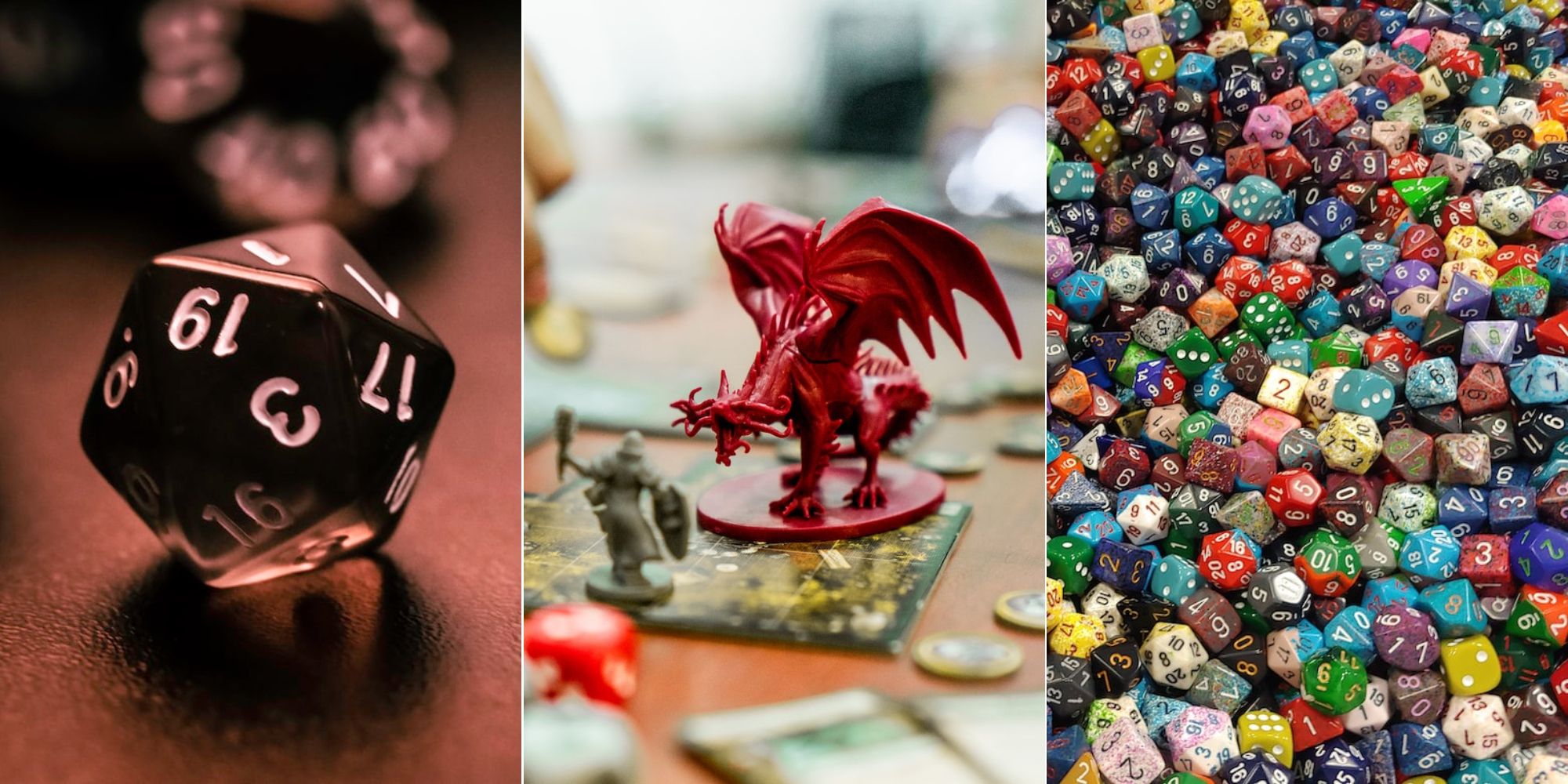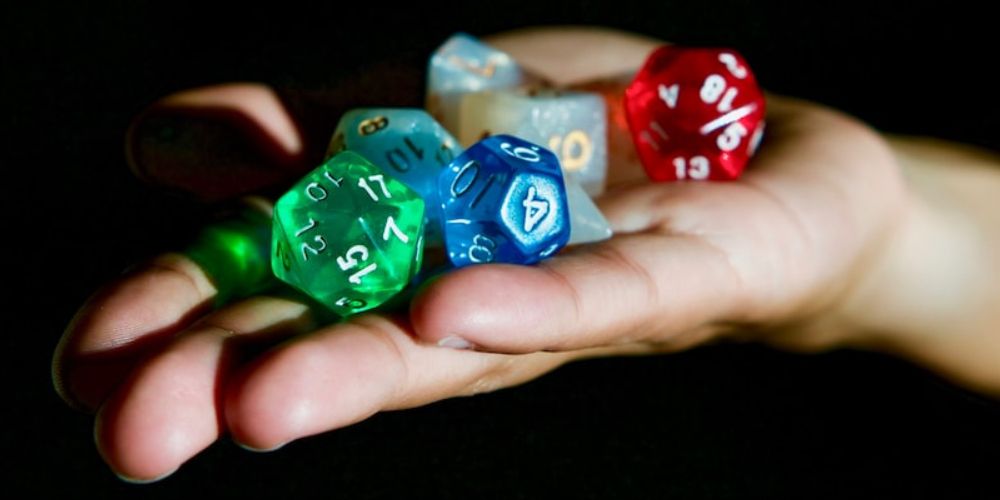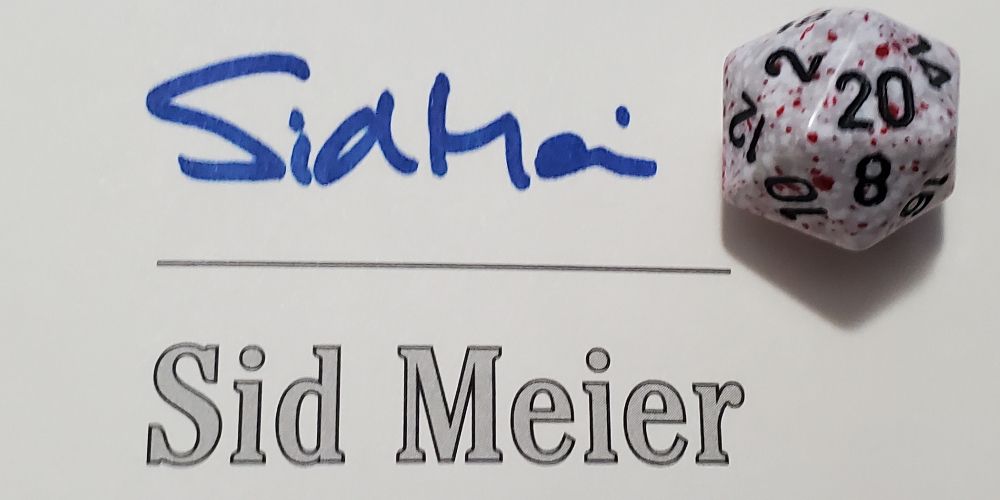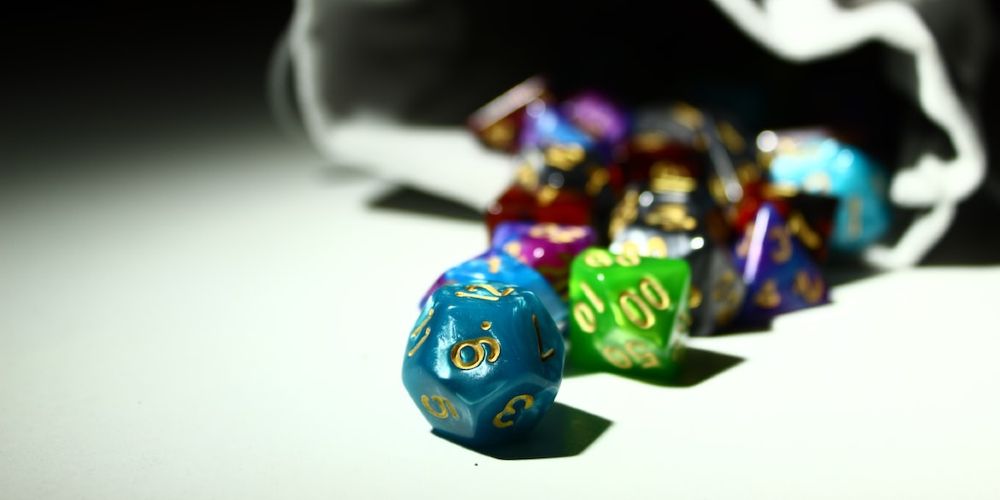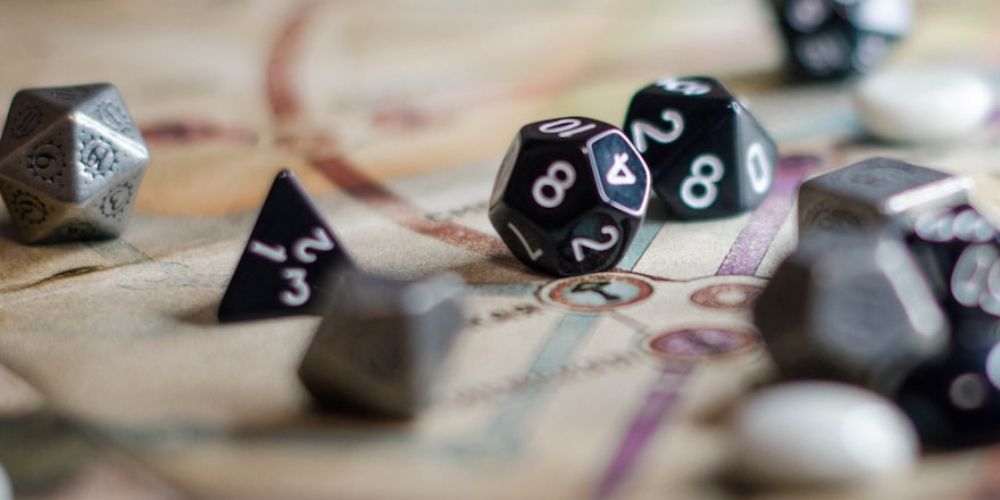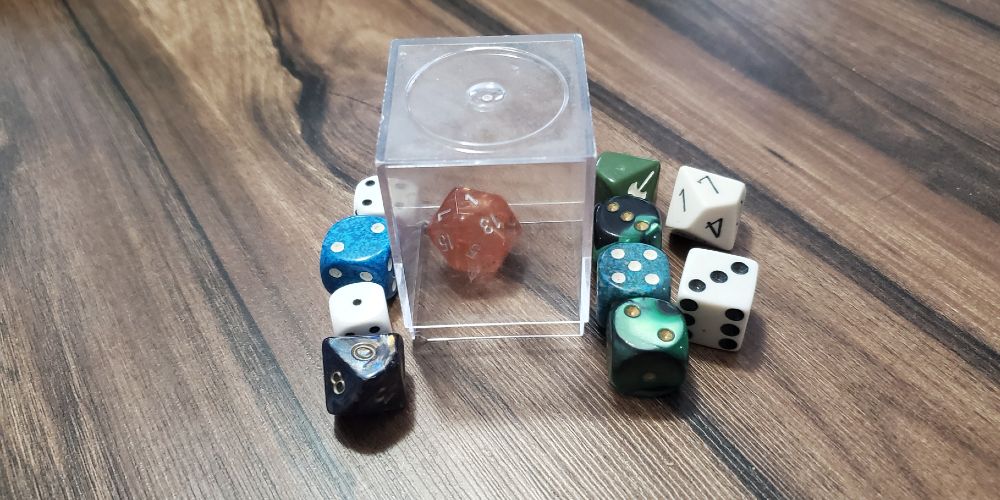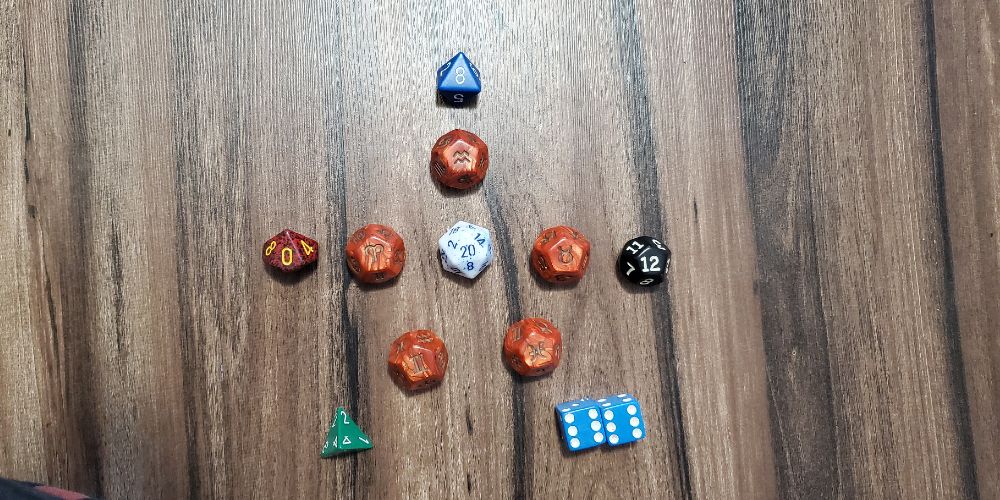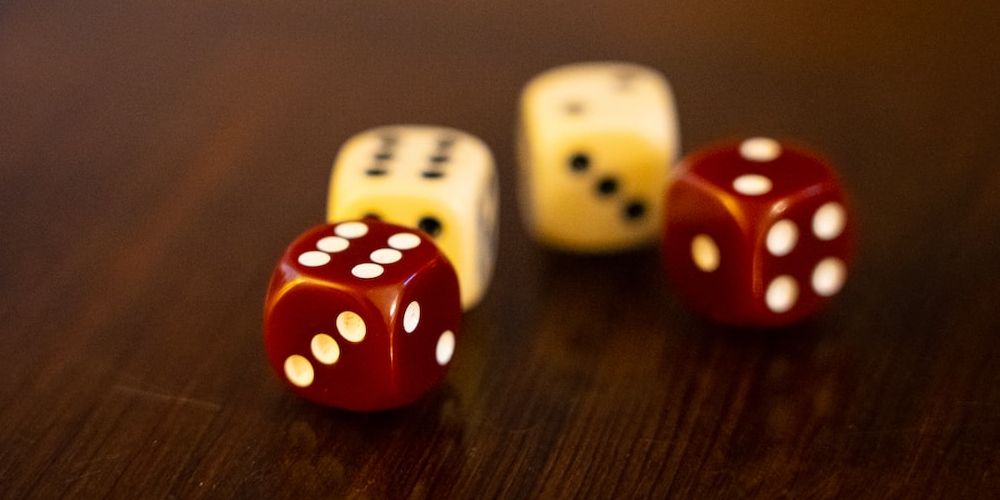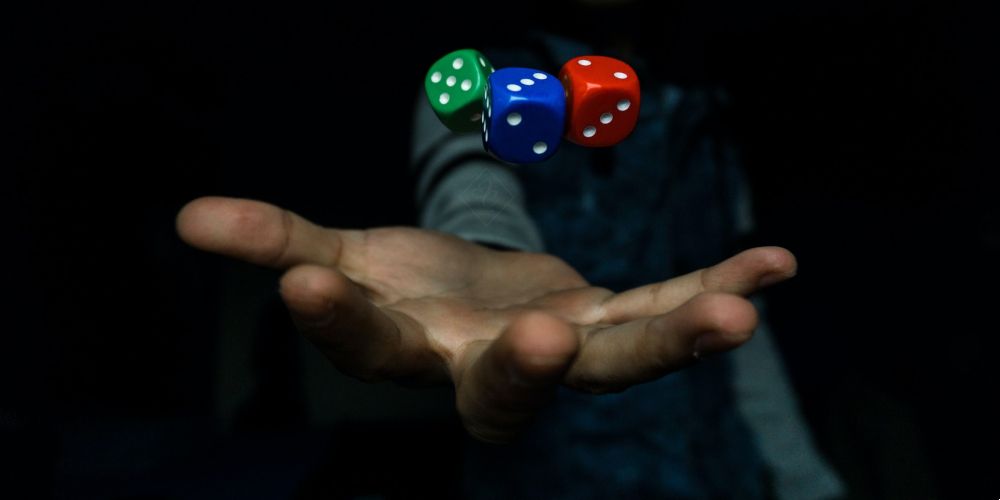Dice are every tabletop gamer's favorite accessory. They're the original random number generator, and the twenty-sided die is about as iconic as it gets. Everyone has a story about the perfect natural twenty, or the worst possible time to roll a one. From Dungeons & Dragons to Monopoly, the uncertainty that dice bring to a game is a major part of the fun.
Wherever luck is involved, superstitions are sure to follow. These harmless rituals are meant to bless dice with more favorable results, and they can add a bit of showmanship to your game night as well!
8 Blowing On The Dice
This is a classic, used by gamblers at craps tables for decades. After picking up the dice before a critical roll, the player exhales on them, supposedly to imbue them with favor from Lady Luck. You could also say that your breath is imbuing a part of yourself into the dice.
A casino variation on this superstition says that the best luck comes from having a beautiful woman blow on the dice. For roleplaying games, we recommend that this responsibility instead go to the player of the character with the highest Charisma stat, regardless of gender.
7 Fame Rubs
This technique is recommended by the creators of the HackMaster roleplaying system, and even has a small section dedicated to it in the rulebook. By rubbing your dice on the autograph of a notable gamer, you can make them roll higher or lower. Rub left-to-right to encourage your die to roll higher, or right-to-left for lower rolls.
The rarer the autograph or the more famous the person, the greater the effects of the Fame Rub on a die. HackMaster even includes a blank section for players to collect signatures, pre-printed with two ready to go, though they note that using a copy rather than an original autograph is sixty-eight percent less effective.
6 Pep Talks
When all else fails, you can always inspire your dice through the power of the spoken word. Gamers are divided on whether dice respond better to threats or to appeals to their honor, so your results may vary.
Most players give their dice an ad-hoc talking-to, reminding them of the importance of the upcoming roll or of the consequences should they underperform. If you need something with a bit more force, try reading them the "band of brothers" speech from Shakespeare's Henry V, or one of R. Lee Ermey's drill sergeant rants from Full Metal Jacket.
5 Dice For Every Occasion
This is similar to having a lucky die, except that it extends to an entire set. Dice roll best when they're spiritually attuned to the game for which they're being used. A set of dice whose colors and design really capture the essence of your character or faction will be more inclined to help you succeed.
If you're playing a Barbarian, consider a set with red speckles that look like blood spatter; green is a perfect choice for Druids, and so on.
When you buy a set of dice for this purpose, it's very important not to lose any. The bad luck from doing so renders the remaining dice a risky proposition to use, so you may need to replace the set if this happens.
4 Dice Jail
If a die roll ends in disaster, the only solution may be to send the offender to Dice Jail. Putting the die back in the bag, or into a special tray specifically for the purpose, will hopefully encourage better results in the future.
Most dice sets come in clear plastic cubes. These make excellent prisons! Place the cube over the criminal die, then group the rest of your dice around it. Seeing their fellow die in isolation should make them think twice about failing you when it's their turn to step up.
3 Charging The Dice
At the start of a game session, arrange your dice in front of you so that they are all showing the ideal number. The idea is that they will adopt this number as their natural state, and seek to return to it when rolled. For best results, arrange them in the pattern of an arcane or religious symbol.
Some gamers believe that it's instead best to set the dice showing the worst possible result. By the time they're rolled, they'll be tired of standing in the same position and want to land in any other configuration.
If a set of dice has been rolling poorly for several game sessions in a row, they may require a long-term recharge. Set them somewhere they won't be disturbed, arranged as described above. If you prefer, you can add crystals or other good luck charms to the arrangement. Let them sit for a few weeks (or even months) and try them again once they've been cleansed.
2 Warm-Ups
If you prefer a more active approach, give each of your dice three to five "warm-up rolls" before play begins. This gives them an opportunity to get any bad rolls out of the way, or to get in the habit of producing good results. If a die shows very unlikely results, such as three ones in a row, that could be a sign that it should be benched for the night.
Make sure that you do all your warm-up rolls before the game starts, as it can be distracting to other players.
1 Never Touch Another Player's Dice
This is the big one, the ultimate gaming taboo. Dice are an extension of the player, and to interfere with that sacred bond is to invite the worst possible luck. Touching another player's dice without permission is a faux pas that puts both your and their rolls at risk!
Communal dice are okay to share, and it's polite to pick up a dropped die from the floor to return it to its owner (dice on the floor are spiritually inert until they're returned to the table). You're also safe if you borrow a player's dice with their express permission. Otherwise, respect your fellow gamers' dice, and they will respect yours.

